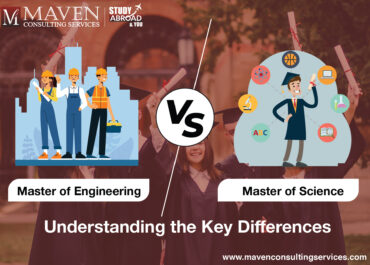Difference Between CV And Resume

Is CV and Resume the Same?
When applying for jobs, especially in foreign countries or different industries, you may come across two commonly used documents: a CV (Curriculum Vitae) and a Resume. While both serve as professional summaries of your qualifications, they are not the same. Knowing the main distinctions between a resume and a CV will help you submit the correct and appropriate document for the position you are applying for.
What is a Resume?
A Resume typically refers to a one or two-page document that outlines your education, skills, work experience, and achievements, tailored to a specific job.
A good resume convinces a recruiter to interview you and is the preferred format in most corporate and private-sector job applications, especially in the United States.
A resume includes the following:
- Personal Details
- Contact Information
- Professional Summary or Objective
- Work Experience (with most recent first)
- Professional Skills
- Education
- Certifications (if relevant)
- Optional: Projects, Awards, Volunteer Experience
What is a CV (Curriculum Vitae)?
Curriculum Vitae, or CV, translates to ‘course of life’ in Latin. While resumes are typically brief, CVs can extend to five pages or more, providing a comprehensive overview of an applicant’s career history, educational background, accomplishments, publications, and other relevant details.
CVs are primarily used in academia, research, medicine, and in regions where CVs are the standard format for job applications.
A CV includes the following:
- Contact Information
- Academic Background
- Work Experience (detailed)
- Research Experience
- Languages and Technical Skills
- Publications
- Presentations and Conferences
- Awards and Honours
- Grants and Fellowships
- Professional Affiliations
For students planning to apply abroad, here are the Top 13 Reasons Why You Should Study Abroad.

CV vs Resume – A Detailed Comparison Table
| Feature | CV (Curriculum Vitae) | Resume |
| Full Form | Curriculum Vitae (Latin for “Course of Life”) | Resume (French for “Summary”) |
| Purpose | Academic, research, medical, or international job applications | Corporate or private sector jobs |
| Length | No page limit (typically 2–5+ pages) | 1–2 pages only |
| Content Focus | Includes publications, research, academic honours, presentations, etc. | Specific skills, achievements, and experience relevant to the job |
| Usage by Region | Common in Europe, Asia, and academic/research roles in the U.S. | Common in the U.S. and Canada (especially for corporate jobs) |
| Update Frequency | Updated periodically with new accomplishments | Frequently customised for each job |
| Focus | Educational and academic background | Relevant job skills and experiences |
| Customization | Static not customized for each job; a cover letter is used to highlight relevance | Highly tailored for each job application |
| Includes | Education, research, publications, conferences, teaching experience, honors, etc. | Contact Info, Summary, Experience, Skills, Education, Certifications |
| Terminology by Region | Called CV in the UK, India, the EU, and Australia | Called a Resume in the U.S. and Canada (English-speaking) |

Global Differences between CV and Resume
Resumes and CVs can differ widely across countries. Variations in format, purpose, and length are common depending on the region if you’re applying internationally.
Equally important is understanding how studying abroad can influence your global career. Below is an overview of how these distinctions appear around the world:
United States & Canada:
- A resume is the typical document required for job applications across most industries.
- A CV is used exclusively for academic, research, or medical positions, providing in-depth details about publications, research, and academic accomplishments.
UK, Ireland, and New Zealand:
- The term CV is used almost exclusively, even when referring to what Americans would call a “resume.”
- These resumes are typically brief (1–2 pages) and resemble those from the United States in terms of structure and appearance.
Europe (mainland):
- CV is the standard term. The Europass CV format is widely accepted in EU countries.
- These CVs include more personal information (e.g., nationality, photo, date of birth) and may follow a standardized layout.
India, South Africa, and Australia:
- The terms “CV” and “resume” are often used interchangeably.
- However, employers typically expect a brief document similar to a U.S.-style resume.
Asia (including China, Japan, and Korea):
Some companies also require handwritten resumes or standardised company forms.
Personal information, such as age, marital status, and a photo, is frequently included on resumes.
Conclusion
Understanding the differences between a CV and a resume is crucial when applying in various sectors and geographical areas.
A CV describes your achievements in a particular role, but a resume highlights your academic and professional achievements. The success of your job search can be significantly impacted by knowing which format to use and when to use it.
Presenting the appropriate paper in the appropriate format will improve your chances of being noticed, whether you’re looking for a student position overseas or a corporate job.
Frequently Asked Questions about CV and Resume
To convert your resume into a CV, you need to add more detailed information about your background. This is especially useful when applying for academic, research, or international roles such as business school admissions.
For example, you can learn how to tailor your resume for MBA programs in this guide on building a winning MBA resume.
The choice depends on your career path and the country where you’re applying. A resume is better suited for business, private-sector, and industry jobs, especially in the U.S. and Canada, because it’s short and focused.
A CV is more suitable for academic, research, or medical roles, or when applying in regions such as Europe, India, or Australia. Neither is universally better; it’s about matching the right format to the right job.
If you’re aiming for international education or careers, it’s essential to align your CV with global expectations. Discover how to unlock global opportunities with the right preparation and strategy.
The reverse-chronological format is the most commonly accepted structure for both resumes and CVs. It highlights your latest experiences first.
For individuals transitioning into new careers or those with career gaps, a functional (skills-based) or hybrid format may be more suitable.
The best format is the one that emphasises your strengths and aligns with the role you’re applying for.
To make your resume ATS-compatible:
- Utilize simple, text-based formatting without images or tables.
- Limit yourself to common typefaces such as Calibri or Arial.
- Use job-specific keywords from the job description.
- Label sections clearly (e.g., Work Experience, Skills, Education).
- Make a PDF or Docx file out of the document.
These steps ensure that your resume can be properly scanned and parsed by Applicant Tracking Systems.
Tools like Jobscan, ResumeWorded, or SkillSyncer is to check if your resume is ATS-ready. These websites provide feedback on layout, relevancy, and keyword usage after comparing your resume to job descriptions.
As an alternative, copy your resume into a plain-text editor such as Notepad to view it without formatting. If it is organized and easy to read, it is probably ATS-friendly.
In some cases, yes, but it depends on the job and location. A CV can be used instead of a resume for academic, research, or international job applications where detailed background information is required.
However, for corporate or private-sector jobs, especially in the U.S. and Canada, a short, tailored resume is usually expected. It’s always best to follow the job posting instructions and use the document format they ask for.
Don't forget to share this article




